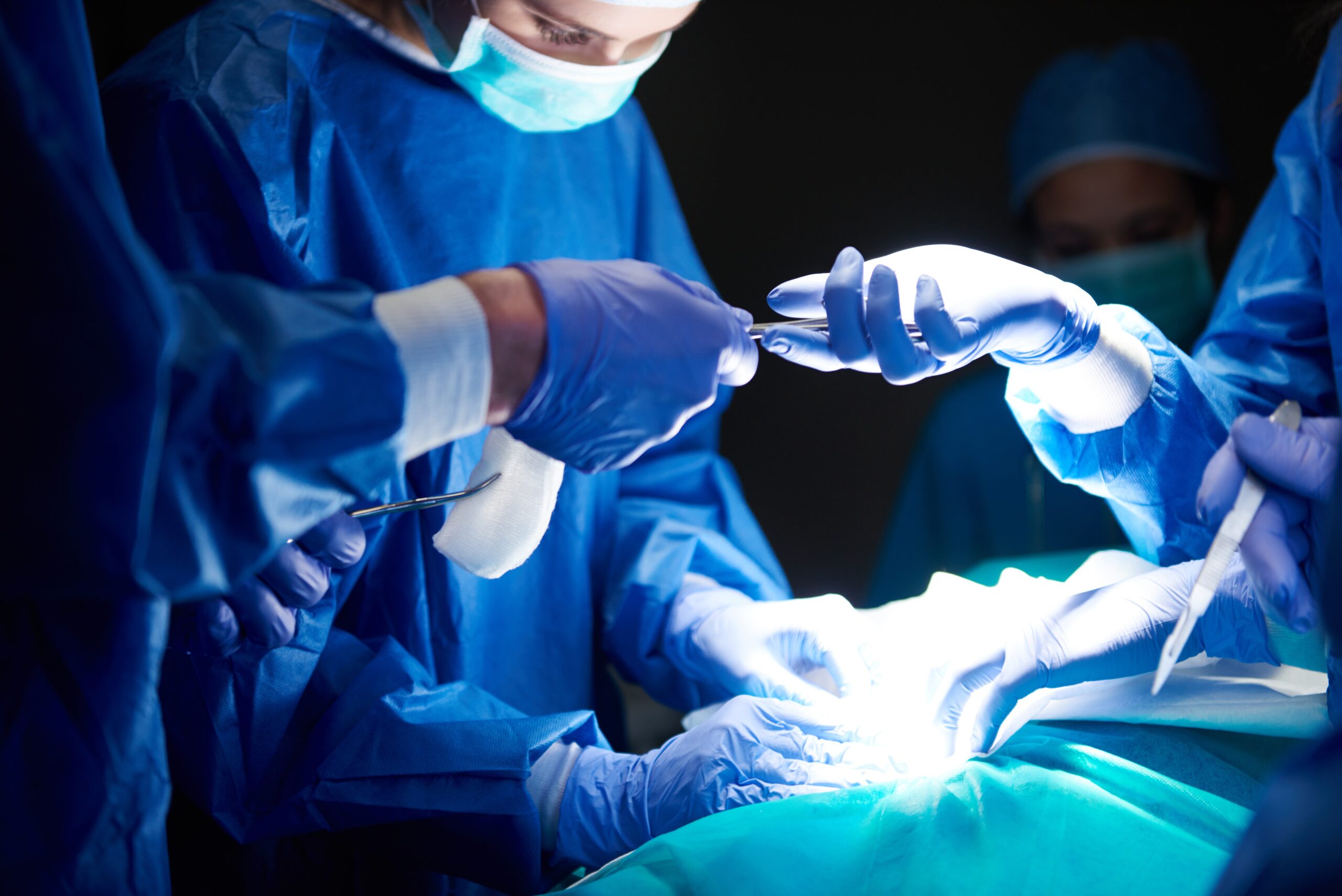Laparoscopic Surgery
Best laparoscopic surgeon in Nashik
Laparoscopic surgery, also known as minimally invasive surgery, is a surgical technique that involves making small incisions in the abdomen to access the inside of the body. A laparoscope, which is a thin, tube-like instrument with a light and camera attached to it, is inserted through one of the incisions. The camera sends images to a monitor in the operating room, allowing the surgeon to view the internal organs and tissues in real-time. Special surgical instruments are then inserted through the other incisions to perform the necessary procedures. Looking for the Best laparoscopic surgeon in Nashik? Look no further than Nims hospital, where you can receive top-notch laparoscopic surgery from the best in the field. Contact us today for more information.
Laparoscopic surgery has become increasingly popular in recent years due to its numerous benefits compared to traditional open surgery. Some of these benefits include smaller incisions, reduced pain, faster recovery, and fewer complications.

Types of Laparoscopic Surgery
Laparoscopic surgery can be used to treat a variety of medical conditions. Some of the most prevalent types of laparoscopic surgery are as follows:
- Laparoscopic Cholecystectomy – This surgery is performed to remove the gallbladder in cases where it is diseased or causing symptoms such as pain, nausea, or vomiting. It is a commonly performed laparoscopic surgery.
- Laparoscopic Hernia Repair – This surgery is performed to repair a hernia, which occurs when a part of an organ protrudes through a weak spot in the abdominal wall. Laparoscopic hernia repair is a minimally invasive alternative to traditional open surgery.
- Laparoscopic Hysterectomy – This surgery is performed to remove the uterus in cases where it is diseased or causing symptoms such as pain, heavy bleeding, or abnormal uterine growths. Laparoscopic hysterectomy is a minimally invasive alternative to traditional open surgery.
- Laparoscopic Appendectomy – This surgery is performed to remove the appendix in cases of appendicitis, which is a condition that occurs when the appendix becomes inflamed or infected.
- Laparoscopic Ovarian Cystectomy – This surgery is performed to remove ovarian cysts, which are fluid-filled sacs that form on the ovaries. Laparoscopic ovarian cystectomy is a minimally invasive alternative to traditional open surgery.
Treatment with Laparoscopic Surgery
Laparoscopic surgery can be used to treat a variety of medical conditions. In addition to the conditions mentioned above, laparoscopic surgery can also be used to treat:
- Gastrointestinal disorders such as inflammatory bowel disease (IBD) and diverticulitis.
- Endometriosis is a disorder in which the tissue that normally borders the lining of the uterus expands and causes pain and discomfort.
- Cancer, including ovarian, colon, and stomach cancer.
- Liver and kidney diseases.
- Obesity, through procedures such as laparoscopic gastric bypass and laparoscopic sleeve gastrectomy.
Other Information About Laparoscopic Surgery
Laparoscopic surgery is typically performed under general anesthesia, meaning the patient is asleep during the procedure.
The duration of laparoscopic surgery varies depending on the specific procedure, but most surgeries take between one and four hours.
Recovery time from laparoscopic surgery varies depending on the specific procedure and the individual patient. In general, patients can expect to experience some pain and discomfort after the procedure, but this can usually be managed with medication. Patients may also be advised to rest and avoid strenuous activities for a certain period of time after the procedure.
Laparoscopic surgery is generally considered safe, but like any surgical procedure, it does carry some risks. Some of the risks associated with laparoscopic surgery include bleeding, infection, damage to surrounding organs, and anesthesia complications. Experience top-notch laparoscopic surgery with the best laparoscopic surgeon in Nashik.
Due to the use of specialized equipment and technology, laparoscopic surgery is typically more expensive than traditional open surgery. However, the advantages of laparoscopic surgery, such as shorter hospital stays, faster recovery times, and less pain medication use, may result in lower overall healthcare costs.
In conclusion, laparoscopic surgery has revolutionized the field of surgery and offers numerous benefits to patients compared to traditional open surgery. With its minimally invasive approach and use of specialized equipment and technology, laparoscopic surgery has become the preferred option for many medical conditions. Patients undergoing laparoscopic surgery can expect smaller incisions, less pain, and faster recovery times compared to traditional open surgery. While laparoscopic surgery carries some risks, it is generally considered safe and effective for the treatment of a variety of medical conditions. Patients who are considering laparoscopic surgery should discuss the risks and benefits with their doctor and follow all pre and post-operative instructions to ensure the best possible outcome. Get the best diabetes care from our Best laparoscopic surgeon in Nashik. With years of experience and a commitment to providing the highest quality care, our expert is here to help you manage your condition and improve your overall health. Contact NIMS Hospital today to schedule an appointment.
FAQs
Laparoscopy can be used for a wide range of surgical procedures, including gynecological surgeries, hernia repairs, gallbladder removal, appendectomy, and many more.
Laparoscopy surgery offers several advantages over traditional open surgery, including smaller incisions, less pain, reduced scarring, shorter hospital stays, and faster recovery times. If you are looking for the Best laparoscopic surgeon in Nashik visit our hospital.
Patients undergoing laparoscopy surgery at NIMS Hospital will be advised to follow specific instructions for preparing for the surgery, which may include fasting, taking medication, and stopping certain activities.
The length of laparoscopy surgery can vary depending on the type and complexity of the surgery. However, most laparoscopy surgeries at NIMS Hospital take between 30 minutes to 2 hours.
The recovery time after laparoscopy surgery can vary depending on the type and complexity of the surgery, as well as the patient's overall health. However, most patients are able to resume their normal activities within a few days to a week after the surgery.
